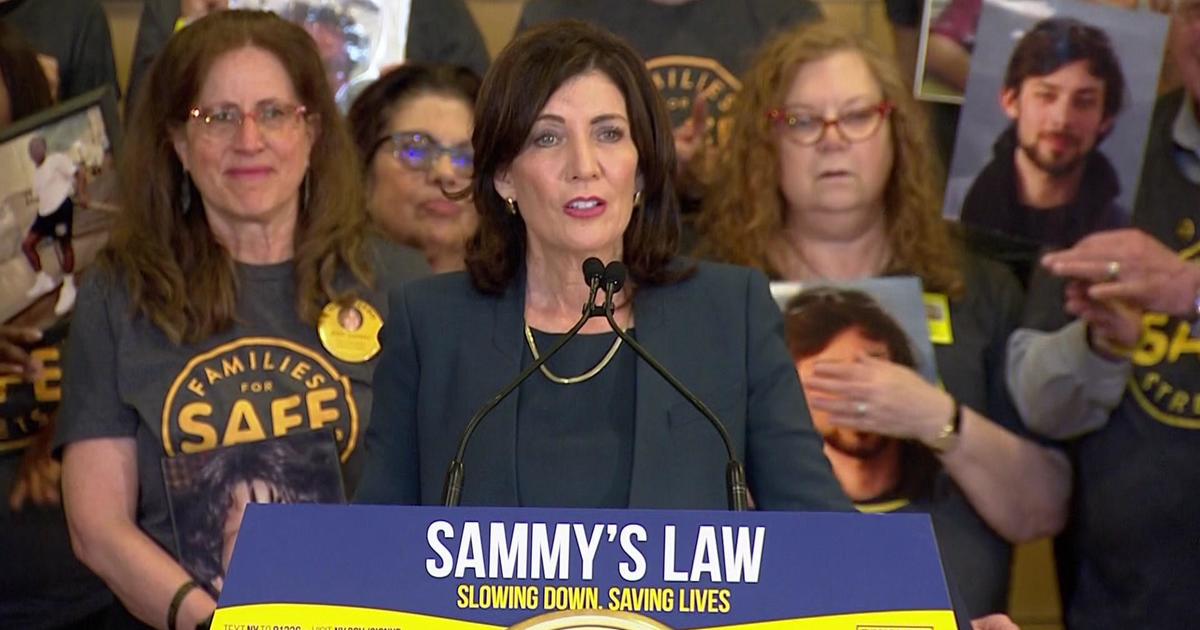Seen At 11: A Shock For Energy And Happiness
NEW YORK (CBSNewYork) -- The latest in wearable technology claims that a low voltage zap to the brain can relieve anxiety and depression, boost energy, and help users sleep better.
CBS2's Chris Wragge recently tried out a new mood altering device called Thync, to see if it's possible to shock yourself happy.
"When I first got it I was prepared to say nope, it tingles, that's it," Daniel Rodriguez said.
Daniel was happy to be feeling the 'vibe' as it's called, from the new mood altering device.
"It seems to be a pretty good replacement for a morning cup of coffee and maybe a glass of wine at night," he said.
The wearable version uses and app, along with strips that are placed to trigger nerves for a rev up or slow down response.
"It actually activates something that you want activated. You decide when you want it on and when you want to use it," Isy Goldwater, CEO Thync, said.
Thync claims to use "neuro signals" to change the way you feel. It's not a medical device, but the Fisher Wallace cranial stimulator is. Robert Anderson has multiple sclerosis, he got a prescription for his about 3-years-ago.
"I'm a little chippier in the morning, little more awake, quicker to wake. I also use it before bedtime and paradoxically it seems to help with sleep," Anderson said.
He said treatment with low voltage waves has helped him cut down on his medications.
"If you're working with a doctor treating depression anxiety, you're going to want to use it very consistently. But, if you're just using it for something that's situational then you can use it on an as needed basis," Kelly Roman, Fisher Wallace explained.
CBS2's Wragge described a "not-unpleasant, stim-like sensation" on his temples. He compared it to waves in the ocean.
"In certain people for specific conditions there are benefits from neurostimulation," Dr. Miroslaw Brys explained.
While smaller devices have been gaining in popularity, hospitals are also finding new ways to treat patients with more serious neurologic conditions with large transcranial stimulation devices.
The waves are powerful enough to cause the doctor's fingers to twitch. Results have been promising, but doctors are still cautious about the smaller devices.
"We have many other alternatives to such devices and the fact that such devices exist and are safe it doesn't necessarily mean that everyone should be using them," Dr. Brys said.
The smaller devices between $300 and $600 and both have science to back their claims. It's imperative that you check with your doctor before using them.



